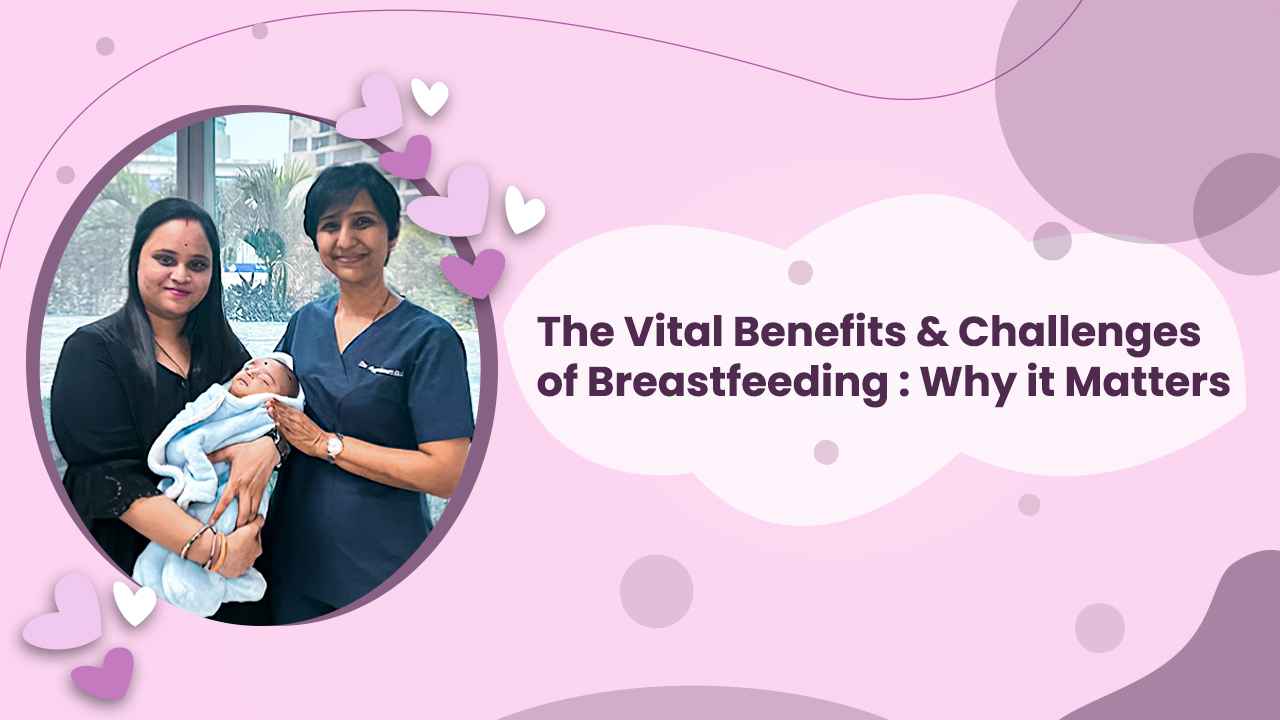Breastfeeding is a natural and beautiful process that provides numerous benefits for both mother and baby. As a gynaecologist, I often encounter questions and concerns about breastfeeding. This comprehensive guide aims to address these concerns, provide helpful tips, and highlight the benefits of breastfeeding.
The Benefits of Breastfeeding
- Nutritional Benefits: Breast milk is the perfect source of nutrition for your baby. It contains the right balance of nutrients that are easily digestible. Breast milk adapts to your baby’s changing needs, providing exactly what they need for healthy growth and development.
- Immune Support: Breast milk contains antibodies and other immunological factors that help protect your baby from infections and diseases. It can reduce the risk of respiratory infections, ear infections, and gastrointestinal diseases.
- Bonding: Breastfeeding fosters a close bond between mother and baby. The skin-to-skin contact and the act of nursing provide comfort and emotional security for your baby.
- Long-Term Health Benefits: Breastfeeding has been linked to a lower risk of chronic conditions such as obesity, type 2 diabetes, and certain cancers in later life for both mother and child.
- Cost-Effective: Breastfeeding is economical. It eliminates the need for formula, bottles, and other feeding supplies, making it a cost-effective option for many families.
Tips for Successful Breastfeeding
- Start Early: Initiate breastfeeding within the first hour of birth if possible. Early breastfeeding helps stimulate milk production and provides the first dose of colostrum, which is rich in nutrients and antibodies.
- Get Comfortable: Find a comfortable position for breastfeeding. Use pillows to support your baby and your arms. A good latch is crucial for preventing nipple soreness and ensuring your baby gets enough milk.
- Feed on Demand: Feed your baby whenever they show signs of hunger, such as rooting, sucking on their hands, or crying. Newborns typically need to feed 8-12 times in 24 hours.
- Stay Hydrated and Nourished: Drink plenty of fluids and eat a balanced diet. Your body needs extra calories and nutrients to produce milk.
- Seek Support: Don’t hesitate to seek help from a lactation consultant, a breastfeeding support group, or your healthcare provider if you encounter difficulties.
Common Breastfeeding Challenges
- Latch Issues: Ensuring a proper latch can prevent many breastfeeding problems. If your baby has difficulty latching, seek assistance from a lactation consultant.
- Sore Nipples: Sore nipples are common in the early days of breastfeeding. Use nipple creams and ensure your baby is latching correctly to alleviate discomfort.
- Low Milk Supply: If you’re concerned about low milk supply, frequent feeding and proper hydration can help. In some cases, herbal supplements or medications may be recommended.
- Engorgement: Engorgement occurs when your breasts become overly full. Regular feeding, expressing milk, and using cold compresses can relieve engorgement.
- Blocked Ducts and Mastitis: Blocked ducts and mastitis can cause pain and swelling in the breast. Continue breastfeeding, apply warm compresses, and consult your healthcare provider if symptoms persist.
Weaning
Weaning is a personal decision and can be done gradually. Introduce solid foods around six months while continuing to breastfeed. Gradually reduce breastfeeding sessions as your baby’s intake of solid foods increases.
Conclusion
Breastfeeding is a rewarding experience that provides immense benefits for both mother and baby. While it can come with challenges, with the right support and information, many mothers can successfully breastfeed. Remember, every mother’s journey is unique, and it’s important to find what works best for you and your baby.




